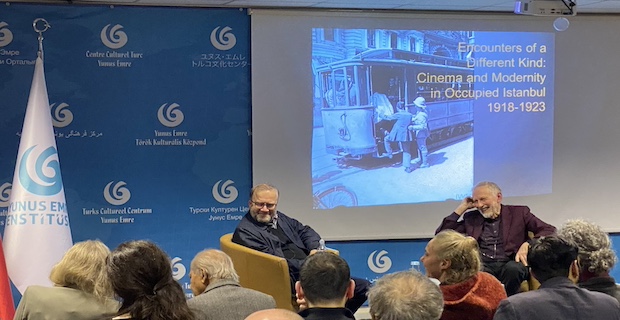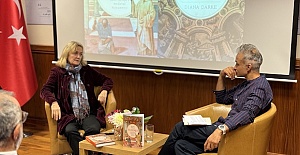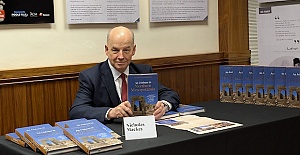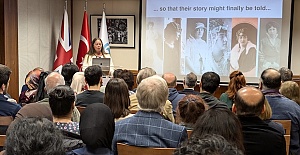The talk, taking place at Yunus Emre Institute London, explored the history and culture of Turkish cinema and featured preeminent film scholars Nezih Erdoğan and Ian Christie.The talk toured the role of cinema as a medium of communication, education, and propaganda during the Occupation, and how it shaped the public opinion and the national identity of the Turkish people. The speakers analysed the cinematic representations of the Occupation, the resistance, and the liberation, and how they influenced the historical memory and the cultural identity of the Turkish nation. The talk featured two eminent film scholars, Nezih Erdoğan and Ian Christie, who shared their insights and expertise on the film industry in Istanbul during the First World War and the Occupation, a period of political, social, and economic turmoil. They discussed how cinema not only survived but also thrived as a popular form of mass entertainment, and how it reflected and influenced the process of Türkiye’s “Westernisation” and the formation of the modern Turkish identity. The evening began with Ian Christie’s whirlwind history of the development and evolution of Cinema. Ian Christie is a British film scholar and Professor of Film and Media History at Birkbeck, University of London with extensive experience at the British Film Institute, author of notable works on filmmakers and a regular contributor to Sight & Sound magazine. Christie showed how foreign films screened in Istanbul influenced Turkish cinema and how Turkish filmmakers drew inspiration from European cinema. Additionally, he emphasized the contributions of foreign filmmakers living and working in Istanbul during the occupation to Turkish cinema. Christie continued on to discuss where British and Turkish cinema history converged, focusing on the Gallipoli campaign which quickly saw commemoration on screens in both nations.
Following Christie, Nezih Erdoğan, discussed cinema and modernity in Occupied Istanbul. Nezih Erdoğan, Istanbul-based film scholar, teaches and researches Film Theory, History, and Storytelling at Istinye University, with notable contributions scholarly work on Turkish popular cinema and Early Cinema in Turkey, including co-editing "Shifting Landscapes: Film and Media in European Context" and "Exploring Past Images in a Digital Age: Reinventing the Archive." Erdoğan emphasized the contributions of foreign filmmakers, such as Levant Cinematography Company and Cecil M. Hepworth, to Turkish cinema. He also discussed the evolution of cinema culture during the occupation period by drawing, for example the popularity of the Military Museum Cinema showcasing the most-watched films, screenings on warship for soldiers who would exchange films between the ships and the little-known relocation of the Pathé Russia Company to Istanbul. Erdoğan finished the talk by highlighted the importance of the National Cinema Program for the independence and development of Turkish cinema.
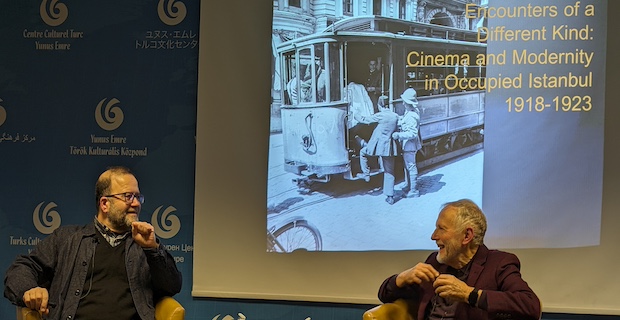
In the question-and-answer session moderated by Dr. Mehmet Karakuş, the director of Yunus Emre Institute London, the panelists and participants discussed topics including the effects of the occupation period on Turkish cinema, the national and international identity of Turkish cinema, the modernization process of Turkish cinema, and the future of Turkish cinema. As was expressed by the two panelists, it was clear by the end, there a scholarly lacuna that needs further research within the rich heritage of Turkish cinema during the occupation period. Nezih Erdoğan teaches Film Theory, Film History, and Storytelling at Istinye University, Istanbul. He has published articles and book chapters on Turkish popular cinema and Early Cinema in Turkey. He co-edited Shifting Landscapes: Film and Media in European Context (with Miyase Christensen, 2008). His book, Sinemanın İstanbul’da İlk Yılları: Modernlik ve Seyir Maceraları/Early Years of Cinema in Istanbul: Adventures in Modernity and Spectatorship was published in 2017. He co-edited with Ebru Kayaalp Exploring Past Images in a Digital Age: Reinventing the Archive which came out from Amsterdam University Pres in 2023.
Ian Christie is a British film scholar and Professor of Film and Media History at Birkbeck, University of London. He worked at the British Film Institute from 1976-96 in various capacities, as head of Distribution, Exhibition, Video Publishing, and, finally, Special Projects. This last involved co-producing a television series on early cinema for BBC2, The Last Machine presented by Terry Gilliam (1995); and co-curating an exhibition at the Hayward Gallery, Spellbound: Art and Film (1996), which included work by Gilliam, Greenaway, and two subsequent Turner Prize winners, Douglas Gordon, and Steve McQueen. He has written several books including studies of the works of Michael Powell and Emeric Pressburger, Martin Scorsese and the development of cinema. Christie is a regular contributor to Sight & Sound magazine and a frequent broadcaster.
Yunus Emre Institute (Turkish: Yunus Emre Enstitüsü) is the Republic of Turkey’s cultural institute. Established in 2007, the organisation has over 85 branches worldwide. Through cultural diplomacy, the Institute aims to increase awareness of Turkish culture, support the learning of the Turkish language and to stimulate greater exchange in the fields of arts, culture, science, education. Since opening its doors in London in 2010, Yunus Emre Institute has become an improving the bonds of friendship between Turkey and the United Kingdom.


 After Nesil Caliskan a by-election will be held in Jubilee ward in Enfield
After Nesil Caliskan a by-election will be held in Jubilee ward in Enfield Publishing the analysis, Labour’s Cllr Ergin Erbil said Everybody in Enfield deserves basic rights
Publishing the analysis, Labour’s Cllr Ergin Erbil said Everybody in Enfield deserves basic rights Gaza-Israel conflict Statement from Cllr Ergin Erbil, Leader of Enfield Council
Gaza-Israel conflict Statement from Cllr Ergin Erbil, Leader of Enfield Council Cllr Ergin Erbil was elected as the new Leader of Enfield Council
Cllr Ergin Erbil was elected as the new Leader of Enfield Council Sustainable Development and ESG, Will This Become the Course for Turkic World
Sustainable Development and ESG, Will This Become the Course for Turkic World Thousands evacuate Santorini as more earthquakes strike island
Thousands evacuate Santorini as more earthquakes strike island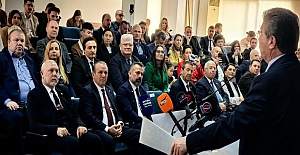 Rauf Raif Denktas and Dr. Fazıl Kucuk II. International Cyprus Studies
Rauf Raif Denktas and Dr. Fazıl Kucuk II. International Cyprus Studies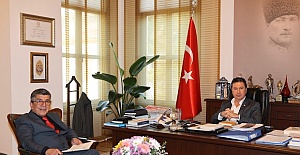 We continue our promotional activities in Europe, primarily in the UK said Ahmet Aras
We continue our promotional activities in Europe, primarily in the UK said Ahmet Aras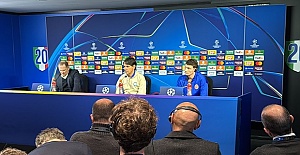 Inzaghi stated that they felt the absence of our national player Hakan Çalhanoğlu
Inzaghi stated that they felt the absence of our national player Hakan Çalhanoğlu Besiktas are said to be in advanced talks to secure the Norwegian coach
Besiktas are said to be in advanced talks to secure the Norwegian coach Footballers are celebrating after Enfield Council officially opened a pitch
Footballers are celebrating after Enfield Council officially opened a pitch 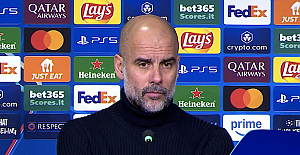 Pep Guardiola's Manchester City beaten by Juventus
Pep Guardiola's Manchester City beaten by Juventus Waspi women threaten legal action over pensions row
Waspi women threaten legal action over pensions row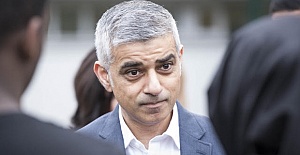 London mayor says 'Brexit was a mistake,' vows to rebuild ties with Europe
London mayor says 'Brexit was a mistake,' vows to rebuild ties with Europe Trade insights, and global growth at the heart of IFE’s Exporters Hub programme
Trade insights, and global growth at the heart of IFE’s Exporters Hub programme  TfL celebrates National Apprenticeship Week
TfL celebrates National Apprenticeship Week





